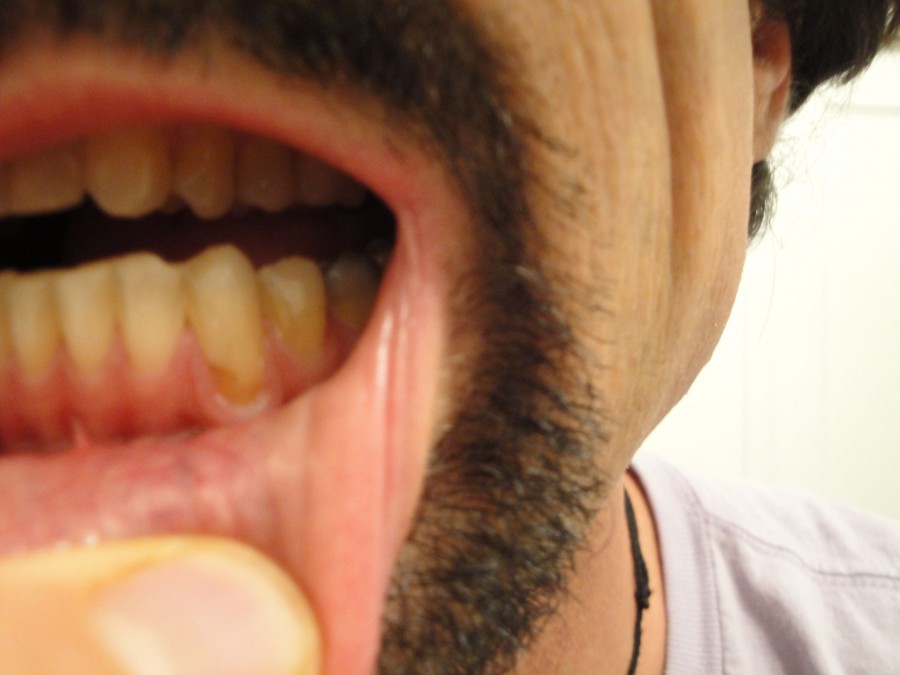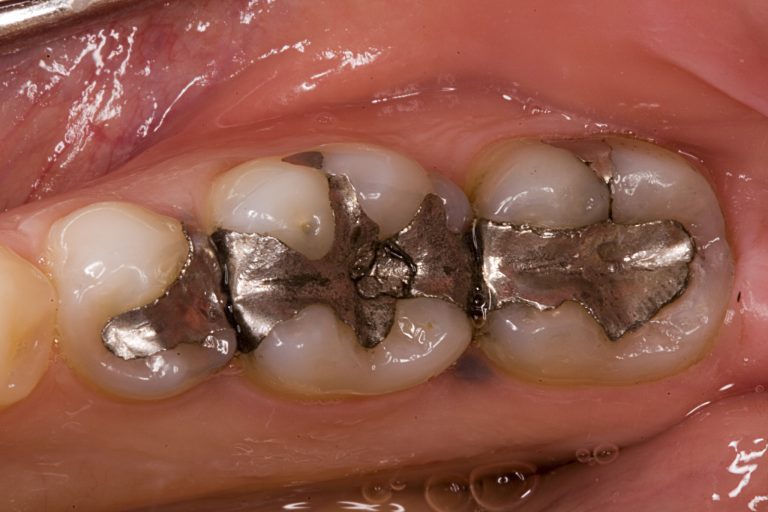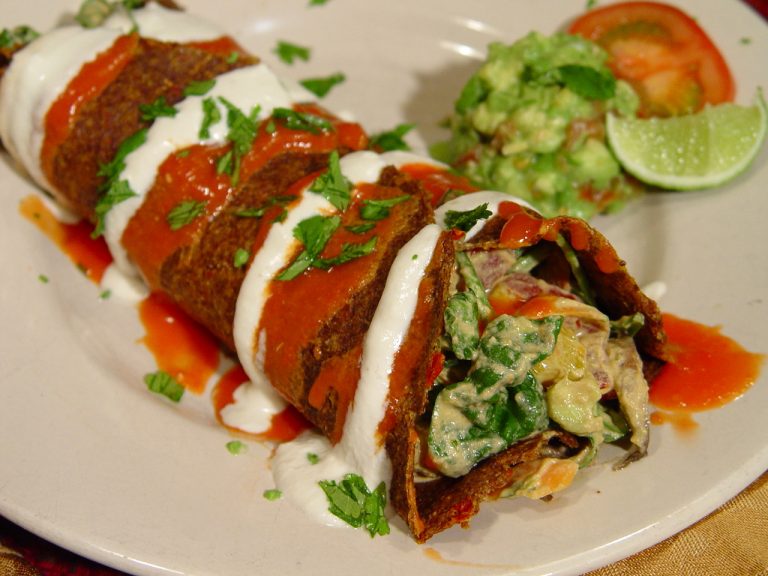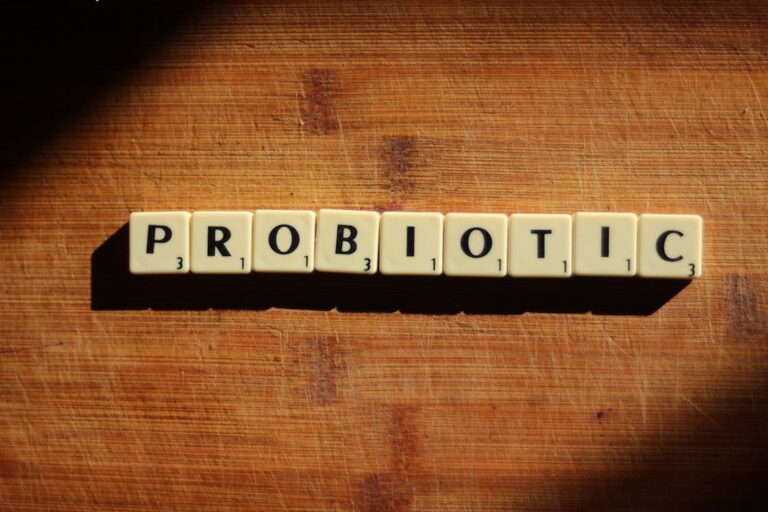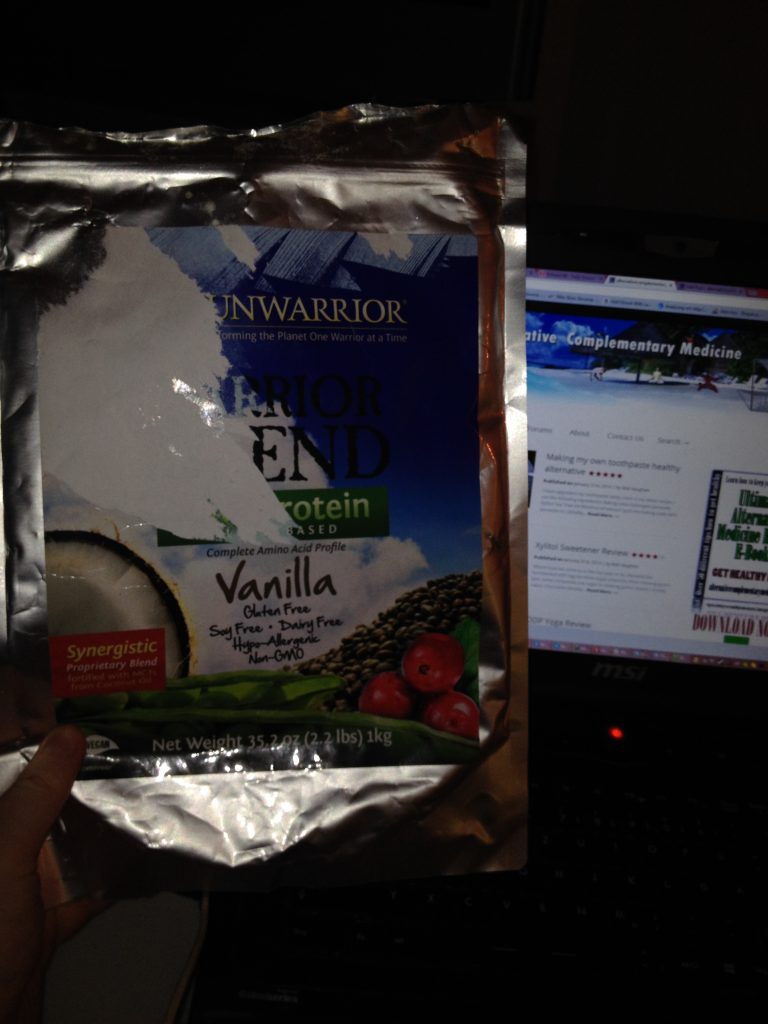Raw Food Dental Problems
This is the new article I found on youtube. It is about dental problems that raw foodists have usually when they are on high raw sugar diet. This happens to me 3 times. I tried raw food 3 times. Failed each time because of teeth. My enamel was chipping off. I did not get cavities, my enamel was just falling off, first time when I was raw I lost quite big chunks of enamel from eating 100 % raw fruit mostly. And that happened after 6 months of raw food. I stopped after that.
Second time I had same problems but I was not 100 % raw, I was like 90%. Third time happened this month and after 5 days of raw, my enamel was just melting away and exposing dentin. I am telling you all, I am cursed. I want to go raw, but I think I would need to make caps on all teeth.
But this article is kind of promising. The author who is raw for like 20 years and looks amazing, is telling us to use soft brush and shower floss. No toothpaste. Only shower floss attachment and soft toothbrush.
Here is the article. Happy reading!
Don’s Dental Issues Blog
This is the “opinion” section of my website, therefore you will find plenty of opinions here. I like to take the high road, but not when doing so puts people’s health at risk in some respect. I hope you’ll take that into consideration as you read through these posts.
************************************************************************
Jameth Sheridan on the high fruit diet
I’m not buying Jameth Sheridan’s explanation that fruit sugar feeds mouth bacteria better than the sugar in candy (“because fruit sugar is live, it’s vital, it has life force…”) His answer to dental decay of “don’t eat that much fruit” is not a credible answer to me. He’s right when he says that fruit is low in minerals, implying that we should eat green leafies (although he doesn’t state this, favoring his superfood products I guess). And to say that fruit eaters get transparent teeth is alarmist. I know people who eat a lot of fruit and they don’t get transparent teeth. They eat a balanced diet of fruit and green leafies, they DO take a multi or green powder, and they do practice good dental hygiene. And think about this: if you clench while sleeping, loosening teeth and thus creating pockets, but eat a low sugar / higher fat+complex carb diet, you’ll have less dental decay in those pockets than if you were to eat a normal (“high”) amount of fruit. So just as we shouldn’t blame diabetes on fruit sugar, we shouldn’t necessarily blame dental carries on fruit sugar. And his statement, “I’ve never met a long term fruitarian who was healthy or who didn’t cheat” carries no weight with me. What if those long term high fruit eaters he met who were unhealthy weren’t adhering to ALL the basics of health, or who weren’t making/getting enough D and B12, or who felt that they needn’t floss/brush because in nature they wouldn’t, or who weren’t getting a proper “sugar:minerals ratio” (lots of fruit so lots of sugar but the green leafies weren’t grown on the most nutrient dense soils; this is why I advocate supplementing with a green powder and/or a multi).
************************************************************************
The advantages of dry-brushing
I favor using only a dry brush (no toothpaste). Blot the brush on a paper towel, tap the slobber out on the basin or “sip” the fluids out of the bristles periodically (my preferred technique). To “blot” the groove between the teeth and gums, direct the soft bristles at a 45 degree angle beneath the gum tissue and wiggle the handle of the brush back and forth about ten seconds in each area. It’s the mechanical action of the bristles that effectively loosens the sticky bacterial colonies in plaque, not so much the chemicals on the brush. Liquid, toothpaste, etc. mainly clogs the spaces between the bristles of the brush that, if left dry, allow plaque to be lifted out of the gingival sulcus (that groove between the gums and the tooth) by capillary action.
************************************************************************
> Why do many people have the experience [dental problems] mentioned here:
> www.curetoothdecay.com/Tooth_Decay/tooth_cavity_vegan.htm
When people who eat a vegan diet develop dental problems, it’s for a reason, and that reason is not because they stopped eating animal products. And I hope we’re not going to entertain the notion that some humans have the DNA to be able to eat a plant-based diet and be perfectly healthy, and other humans don’t have the DNA for it and require animal food to be optimally healthy, because this is simply not true. Every animal on this planet has a “species specific diet”; the diet to which that animal is designed to eat (and to eat the foods of their designed diet as those foods appear in nature and not processed, which includes cooking). Humans are no different. If you get a roomful of experts on the giraffe, for example, they may have different opinions on whether giraffes should be kept in zoos or not, but they will all agree on what a giraffe is designed to eat. All of them. And it’s usually difficult to get a roomful of experts to agree on anything. But not on the diet of hippos, ants, hummingbirds, and of all the animals on this planet, expect for one… humans. This is because of misinformed/miseducated people due to the tons of mis- and dis-information that abound, and this is because of either the profit motive or personal preference, i.e. believing what we’d rather believe, as opposed to believing in the truth.
I’ve been eating a vegan diet for over 30 years, and an all-raw (all uncooked) fruit and leafy greens diet for over 18 years, and so far so good. I phrase it this way because we really won’t know if our chosen way of eating worked for us until we see if we did or didn’t get a diagnosis of something serious, which won’t be for another 25 years or so in my case. And since I won’t have a time machine to be able to go back to age 20 and try a different approach if I do get cancer or Alzheimers when I’m older, it’s important for me to make correct choices now… which is why I’ve spent 35 years researching the issue of optimal health. So we’re going to be stuck with the ramifications of whatever diet we decide to eat. I hope the diet you decide to eat is decided by you and you alone; don’t embrace what seems to sound good to you or what “resonates” with you. Base your decisions on hard-science, empirical evidence, sound logic, and common sense.
But back to teeth. As far as dental problems being caused by lack of Essential Fatty Acids (EFAs) or proteins, a plant-based diet of fruits (both sweet and non-sweet) and leafy greens do have all the EFAs and protein one would need to be healthy if those substances are not damaged by cooking, and if one is eating enough of these foods (meaning you must be active enough to warrant enough calories worth of food to get enough EFAs and protein), and if you are eating a variety of foods (a diet of just oranges and romaine lettuce will result in dental problems). It’s amazing how the fact that cooking damages EFAs and protein is not known by those who weigh in on the issue of diet. Even traditionally educated nutritionists aren’t taught what happens to the various components of food when they are subject to heat.
Re: dental problems. If you could ask dentists what percentage of their patients with dental problems are vegans, you’d get a very low number. But, as I said, there are vegans (and raw foodists) with dental issues. One reason is the increase of grain products and other “acid forming” foods when going vegan. Excess acidity in the bloodstream causes the body to use stored alkaline minerals, calcium especially, to neutralize the acid condition. This will, over time, demineralize bone, and that includes teeth.
Those raw foodists who developed major dental problems in my experience were found to be eating a lot of citrus fruits, little to no leafy greens (excellent source of minerals assuming enough minerals in the soil), and waaaaay too many nuts (metabolizes acidically).
I wonder if the most damaging practices to teeth are discussed in Ramiel Nagel’s book, such as:
1. Fluoridation (actually promotes tooth decay).
2. Using toothpastes that contain glycerin (which coat the teeth and prevent remineralization of the enamel) which is basically all toothpastes.
3. Brushing with anything but a “soft” toothbrush.
4. Clenching/grinding teeth while sleeping which can loosen them allowing pockets to form where bacteria can develop and it’s difficult for the body to effectively deal with bacteria in these pockets.
5. Improper flossing (irritates gums causing them to recede exposing non-enameled parts of the teeth which are more easily damaged by acids).
6. Products (that can be termed “vegan”) that demineralize teeth such as soda, and acid-forming foods such as soy and grain products via the mechanism mentioned above.
7. Dried fruits (sticky sugars linger on teeth feeding bacteria whose “poop” is acidic and damages enamel).
8. Too much nut and seed consumption (prevalent among many raw food vegans). The body controls mouth pH, and will raise mouth pH after a meal of nuts (probably to deal with the particles of nuts that remain in the mouth) and this will have a deliriousness effect on tooth enamel over time.
9. Consuming hot and cold things. Divergence from normal mouth temperature by the amounts experienced when consuming ice cream or tea for example contracts and expands the enamel and over time causes “cracks” to form which weakens teeth but more importantly allows bacteria to enter those crevices where brushing can’t get to them. This is especially pronounced in the areas of dissimilar materials such as where natural tooth meets metal filling (the thermal expansion properties of enamel and metal are different and increase the “cracking factor”).
10. When moving away from unhealthy processed food that is fortified with certain nutrients, it is important to make sure that you still get those nutrients now that they are not being provided to you via those fortified products. Some of the more important of these nutrients are vitamins D and B12. Many processed foods marketed to vegans are not fortified with any nutrients. And if the raw fruits and vegetables that raw food vegans eat are lacking in any essential nutrients because they come from an agricultural-based system, someone could bump up against a nutrient deficiency, which, in the case of vitamin D, can impact bone health and thus dental health.
So as you can see, there are other factors to the issue that need to be considered, including genetics (some people have stronger or weaker enamel; those with weaker enamel may want to rinse their mouths with something that kills bacteria before going to sleep, like a diluted clove oil).
************************************************************************
Kevin Gianni on a high fruit diet and dental problems
> “The other thing you need to be careful about is that
> eating a high fruit diet can effect your teeth.
> I know, you’ve heard people say this isn’t so. I have too.
> But I can’t deny the EVIDENCE that I’ve seen and heard
> from people who’ve tried it and had their teeth
> literally start to fall out.” – Kevin Gianni
I haven’t found anyone who tried eating a high fruit diet and their teeth fell out. I think I’m way past the point of “trying it” and I’ve still got my teeth… teeth that, by the way, were ravaged by all the candy and sugar laden crap I ate as a child and teen (13 cavities). Now, no cavities. Of course this doesn’t mean that the adoption of a high fruit don’t shouldn’t bother anyone’s teeth; I’m not saying there haven’t been people who switched to a high fruit diet and had problems with their teeth, but just like you can’t blame diabetes on carbs even though if you stop eating sugar, blood sugar will be more stable (but you’ll be getting your calories from a high fat diet so you’ll degrade your health in other ways), you can’t blame tooth problems on the sugar from fruit. (Although Kevin phrases it “Sugars – from fruit or not” as if all sugars are created equal). If you’re not getting enough minerals because you’re either not eating enough greens or the foods you *are* eating are minerally deficient, and/or if you weren’t getting enough minerals before you adopted a high fruit diet and thus have compromised teeth, and/or are producing a lot of acid because of emotions, and/or if you have “weak” enamel genetics… and are not compensating by supplementing, flossing, dry brushing, and rinsing with a bacteria killer, than, yes, one could end up with some dental problems when adopting a high fruit diet. And did Kevin mention rinsing before bed? I think it’s a big help.
Bottom line: there are so many reasons someone could be having dental problems when eating a lot more sweet fruit, to deal with the problem by making people question the validity of a high fruit diet is not the answer to the problem. My take: 1. be as sure as you can that you are consuming enough minerals, like you would have from food eaten from the wild, which may mean you take a multi that has highly bioavailable minerals. 2. brush and floss and rinse before bed. 3. stay away from dried fruit and go easy on the dates. 4. And maybe do like some primates do and eat a little green leafies after a sweet fruit meal; maybe the reason the instinctively do this is to bath the teeth in “mineralized juice” to neutralize any acid production or maybe it washes the teeth of any lingering sugars. Who knows.
************************************************************************
Eco-Dent Tooth Powder
Ingredients:
Sodium Bicarbonate (baking soda), Tartaric Acid, Sodium Methyl, Cocoyl Taurate, Calcium Peroxide, Calcium Carbonate, Magnesium Carbonate, Sea Salt, Hydrated Silica, Peppermint oil, Myrrh.
If you are not used to a toothpowder, this product may seem a little strange. The powder is hard to spread onto the brush until you take the top off, pour a small amount on your hand and use a wet toothbrush to pick it up.
However, once you get used to it, you will quickly see that this is one of the best commercial brands out there. It has no fluoride, no glycerin, no sodium lauryl sulfate, and no dyes or sweeteners. It comes in two versions, one with Calcium Peroxide which is a natural tooth whitener and one without. The bicarbonate of soda, salt and peroxide all provide strong anti-bacterial agents. However, Eco-dent actively helps in the remineralization of your teeth. First the powder ensures your teeth are clean and free from any sticky glycerin coating. Next, as you add water to the toothpaste, CO2 is created which combines with your saliva to product carbonic acid. Unlike the strong acids from foods which eat away at the enamel, the carbonic acid dissolves the minerals in your saliva (which come from the foods you eat) to remineralize the teeth and strengthen the latticework of your enamel. When too many mineral ions are dissolved from our enamel by the acids from our food and bacteria, the enamel’s fine latticework structure breaks down irreversibly, and a cavity results.
This toothpowder also has some other great benefits. You only need a very small amount, and the container will last for a long, long time. Once you get the hang of applying the powder by using a small amount on the palm and using the wet toothbrush to pick up the powder, it’s easy to use.
Pro’s – Remineralizes teeth naturally and contains no harmful ingredients, dyes or sweeteners. Lasts a long time. Very good value for money. Perfect for travel.
Con’s – Some prefer toothpaste. Hard to apply if you try and squeeze powder from the container lid. If you aren’t benefiting from this product, and dry-brushing would be just as effective, if not better, then you are wasting your money and bothering with something you needn’t bother with.
************************************************************************
Why the dental problems?
In my years of counseling raw foodists I have come across some people who have problems with their teeth after they’ve adopted a high (normal) fruit diet. Some mistakenly take this to mean that humans are not designed for a high fruit diet, but this is incorrect.
As with most health related issues, dental problems are not so cut-and-dried. Why do some people who adopt an all raw vegan diet have dental problems, and some don’t? Here’s where individuality comes into play. There are a number of contributing factors.
Firstly, yes, fruit tends to be lower in minerals than green leafy vegetables, so this would suggest that we should also consume some green leafy vegetables (I have some almost every day), but this doesn’t mean that the majority of our diet should be green leafy vegetables, because we wouldn’t be able to get enough calories.
Here are some contributing factors to dental problems… keep in mind some of these will apply to some people and some won’t.
Fruit sugar does feed bacteria in the mouth, and when these bacteria are well-fed, they multiply. So you’re likely going to have more of these guys when eating a high (normal) fruit diet than when eating a low fruit diet (and grains and fat for fuel). It is NOT the sugar that damages teeth (you can take a tooth and place it in a glass of sugar water and nothing will happen to it, but try a glass of soda – which contains phosphoric acid – and that tooth will go bye-bye). Bacteria are living organisms, and like all living organisms, they poop, and their poop is acidic, and THIS is what damages teeth.
If you have good “dental genetics”, and you weren’t given a lot of antibiotics when your adult teeth were forming (they weaken teeth for life), and you are getting and utilizing all the minerals our body needs to maintain strong teeth, then you should have healthy teeth even on a high fruit diet. But if your dental genetics are not as perfect as they could be, and/or you received a lot of antibiotics as a child (tetracycline specifically), and/or you are not getting all the minerals your body needs, you are more prone to dental problems when adopting a high fruit diet.
Even though our ancestors didn’t need to brush their teeth to avoid cavities, I personally need to do good dental hygiene to keep from getting cavities on this diet. And others need to do this too. I have researched the dental issue for a long time, and here’s what I do:
I “dry brush”. Dentists in the know will tell you that 99.99% of all toothpastes contain glycerin which coat the teeth. This was thought to protect the teeth from the ravages of the acidic bacteria poop, but it doesn’t. What it DOES do is keep your saliva from remineralizing the teeth, which helps to prevent cavities. You could put other things on your toothbrush, like Peelu Tooth Powder (www.vitacost.com/Peelu-Dental-Fibers), but you’ll tend to do a more thorough job of brushing if you have nothing on your brush. Then use only a soft brush (not “medium” and certainly not “hard”). This is the BEST brush (http://tinyurl.com/23no8e8) in the world (yes, you must buy in quantity, but they make great gifts). If you feel you must have something on your brush, try Peelu Tooth Fibers (vitacost.com/Peelu-Dental-Fibers) or
EcoDent Powder (www.vitacost.com/Eco-dent-Daily-Care-Toothpowder).
I floss before bedtime. If I’ve eaten something like stringy mango, which can get stuck in between teeth, I floss after this type of meal. I do not recommend trying to get the floss under the gums the way dentists show you, that is the job of the tooth brush bristles when you brush at a 45 degree angle to the gum-line. I floss just to remove food that is trapped in between teeth, AND to disturb any bacterial colonies. I also use a showerfloss; it’s like a water pic that you use in the shower. It’s great because you don’t have to worry about making a mess… because you’re in the shower!
I also rinse my mouth just before going to sleep with diluted clove oil (one teaspoon to 8 ounces of water, www.nowfoods.com/Products/PersonalCare/Products/M004118.htm). This disturbs mouth bacteria. I know there are some Natural Hygienists who bristle at the thought of doing this, but I believe in dealing with reality and not doing things based on “we shouldn’t have to…”
Some health advocates will say that to combat dental problems “don’t eat so much fruit”. Okay, but then where will you get your fuel from… fat and/or complex carbs in grain and dairy products? That can’t be the answer.
For completeness’s sake, I should mention one other contributing factor to cavities. If you clench or grind your teeth while sleeping, this can loosen teeth creating pockets between tooth and gum where bacteria can live and go to town. You may clench or grind and not even know it. But if you wake up with a sore jaw, it’s probably because of this. If you do this (and a competent dentist should be able to tell you if you do), wear a dental guard (doctorsnightguard.com) while sleeping so the teeth aren’t loosened or otherwise damaged, and follow the other oral hygiene tips mentioned above, especially rinsing with clove oil if you already have loosen teeth (and they aren’t so loose that you can tell by wiggling them; they’re just loose enough where bacteria can get into the pocket).
************************************************************************
The criteria I use when choosing a dentist are:
* The dentist should do amalgam fillings removal and be proud of it, even mentioning it in any written lists of procedures (like on their website). If they say they “can” do it, that’s not good enough for me.
* Do they do amalgam fillings? You can ask, “do you ever use mercury amalgam fillings?” If ‘yes’ I’d not go there.
* I ask how new is the equipment they use that protects the patient when mercury fillings are removed. There have been many advancements in this area, and dentists who really care about their patients will upgrade to the best equipment, and this says a lot about the dentist. This question is best asked of the dentist; office managers usually won’t know the answer.
* Ask what protocols they recommend before and after mercury filling removals. If they don’t recommend anything specific, run. A good dentist knows the value of consuming chlorella before and after mercury removal, and may even mention cilantro (these having to do with heavy metal removal; some mercury may get into your system even with the best protective equipment). You can buy Sun Chlorella in the supplement section of Whole Foods and many health food stores, and fresh cilantro can be bought at Whole Foods.
* A good way to tell if the dentist is keeping up with the times, AND providing the safest equipment is to see what kind of x-ray machine s(he) has. Digital x-rays are safer than the old fashioned kind. You can tell if they’re digital by asking, “When the x-rays are taken, can they be seen immediately on a computer monitor?” If ‘no’, I’d go elsewhere.
* If the dentist is advertised as a cosmetic dentist, or specializes in cosmetic dentistry, I’d steer clear, even if the ad also says they do restorative dentistry. What can happen is that the dentist ends up doing mostly cosmetic dentistry and gets out of touch with restorative dentistry, both from a new technologies perspective and from a skills perspective.
* Since you’re going to get those mercury fillings replaced with something else, ask if the dentist does Clifford testing (biocompatibility testing) http://ccrlab.com There are different formulations of composite fillings, and some may have materials in them that react badly with your body. Some people pooh-pooh this test, and I can’t tell for 100% sure one way or the other, but I think that if it DOES have merit, why not use it. It requires you to go to a lab that draws blood, and they draw some and put in the mailer that the dentist provided you. While this probably shouldn’t be a “deal breaker” when choosing a dentist, it’s something to consider.
“CEREC is an acronym for Chairside Economical Restoration of Esthetic Ceramics. The system is manufactured in Bensheim, Germany. The cavity preparation is first photographed and stored as a three dimensional digital model, and proprietary software is then used to approximate the restoration shape using biogeneric comparisons to surrounding teeth. The practitioner then refines that model using 3D CAD software. When the model is complete, a milling machine carves the actual restoration out of a ceramic block using diamond head cutters under computer control. When complete, the restoration is bonded to the tooth using a resin.”
This is neat in that you don’t have to make a 2nd trip. But it begs a question about what material is used. Normally when the impression is taken, it’s sent to a lab to have the restoration made. The results from the Clifford test are looked at by the dentist and he/she determines the best material to use (there are many different formulations of “composite”). The dentist relays this to the lab making the restoration. I have to wonder if a dentist that uses a CEREC milling machine on premise has all the different kinds of materials. It would be interesting to ask him if he does a biocompatibility blood test. If he says ‘yes’, I’d ask how many different materials does he have for his CEREC milling machine. If he has a wide enough range to accommodate almost everyone, he should have no problem answering your question. But if he has only one or two types, and he sees where you’re going with your line of questioning, he may start throwing BS at you in the form of, “well compatibility testing is not absolute…we’ve never had a problem with any of the materials we use…” etc.
My choices (based on my Clifford test) included gold or a composite called “Empire”; other more common composite choices I tested ‘bad’ for. Gold is the “king of fillings” in that it lasts longer than any composite. It’s downside is that it expands and contracts at a different rate than enamel, so hot and cold foods and drinks can, over time, cause weakening of the tooth due to crazing (micro cracking). And you can’t use it where it can be seen when you smile. But since I don’t do hot and cold things things (except for banana ice cream), and it was on a back tooth, I opted for the gold.
Does the CEREC machine do “the king of fillings”? I’m guessing no. This would be an interesting discussion to have with a dentist who uses the CEREC method of making restorations. I’m not saying I wouldn’t do the CEREC method just because I couldn’t get gold, but it would be interesting to hear his explanation of why composites are just as good as gold (if he indeed does say this). And composite is less expensive than gold.
Since the last thing you want is tiny gaps between restoration and tooth, and since a restoration made with the CERED machine would, in theory, be a more exact fit than the older “impression” method, I’d look into a dentist who does the CEREC method. But it still comes down to how conservative he is; how much would he lean towards or away from doing a root canal. When a friend of mine worked at a gas station as an auto mechanic, the owner would frequently sell people on repairs that weren’t really necessary, and he did it because he could get away with it. When my friend got his own shop, he didn’t do that, but he suffered for it financially, and eventually lost the shop. He said that for many shops, doing unnecessary repairs was necessary if they wanted to stay in business. Who knows how much this applies to a dentist’s business. Most people are not going to argue with a dentist who says “you need a root canal”. Hmm, but maybe if you say, “Well, since I can’t afford that, you’ll have to pull the tooth” and you look sullen at the thought of losing a tooth, and the dentist, at heart, is someone who really wants to save a tooth if at all possible, maybe that might get him to “reconsider” the issue. You have nothing to lose by saying it; you don’t have to go through with the extraction… I’d just be curious how a dentist would react to the thought of having to pull a tooth that could be saved by something other than a root canal.
